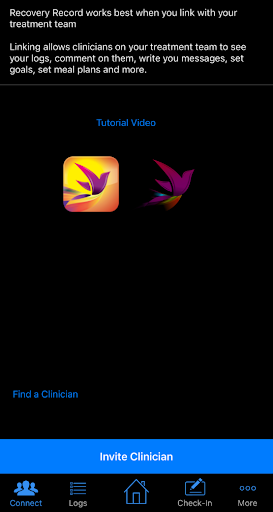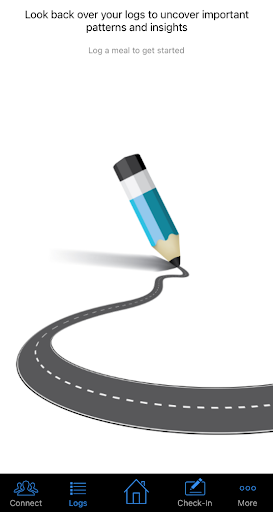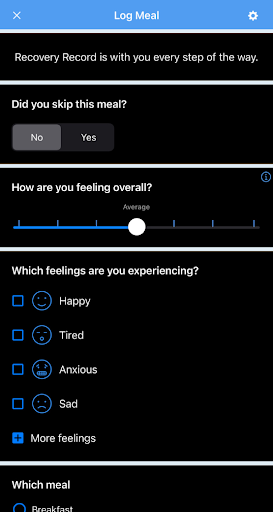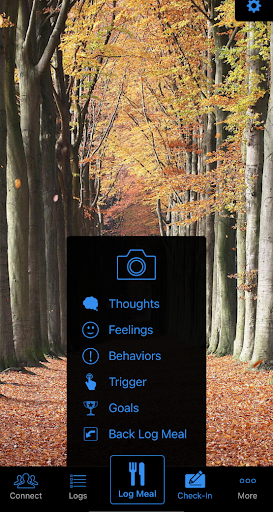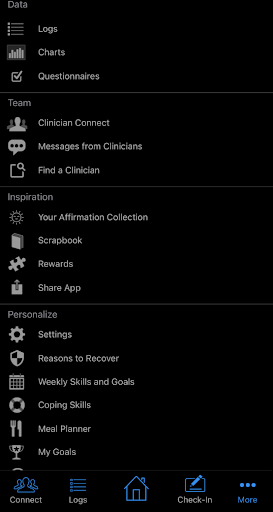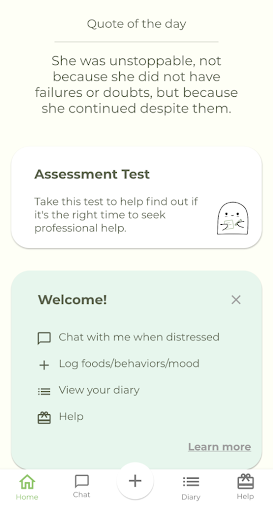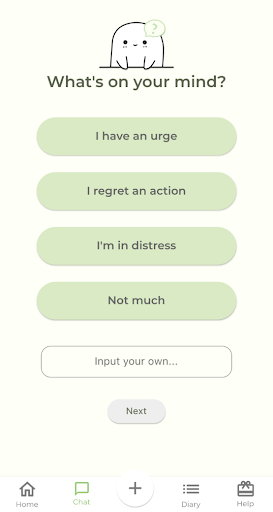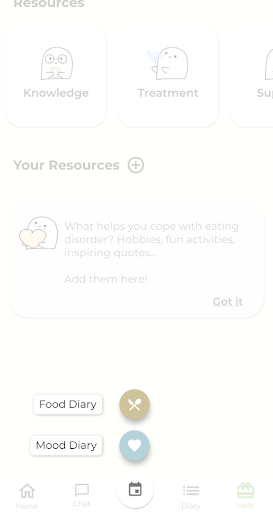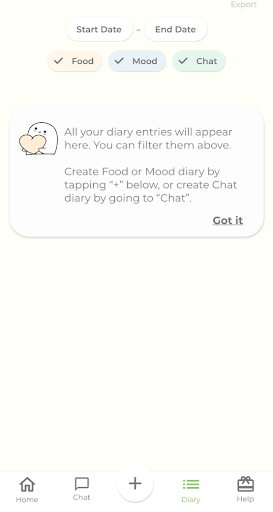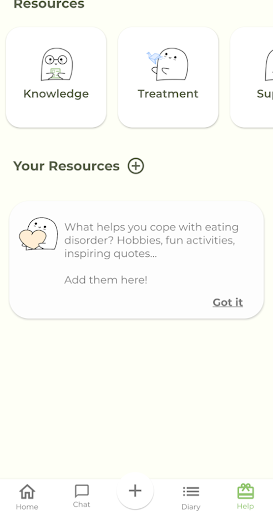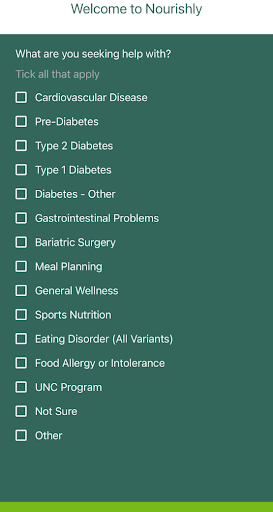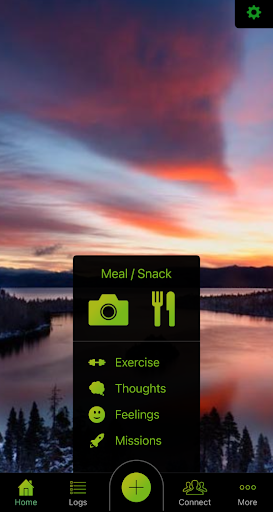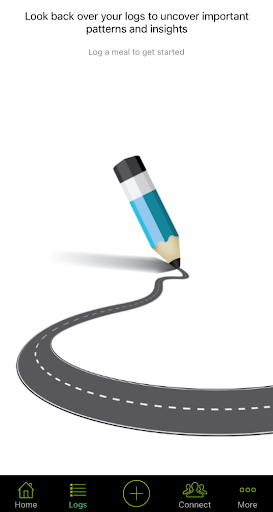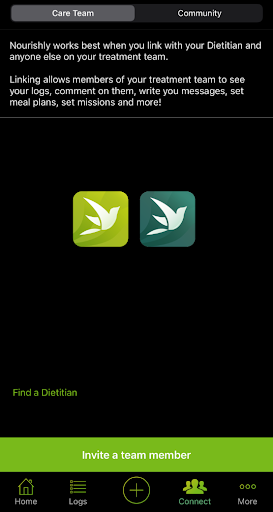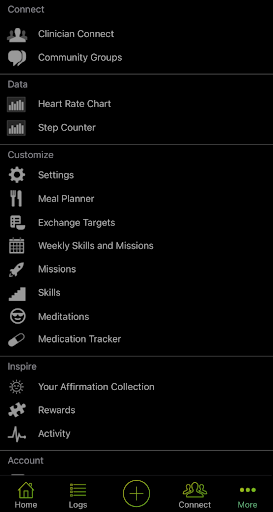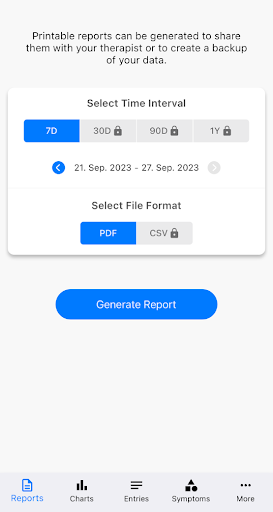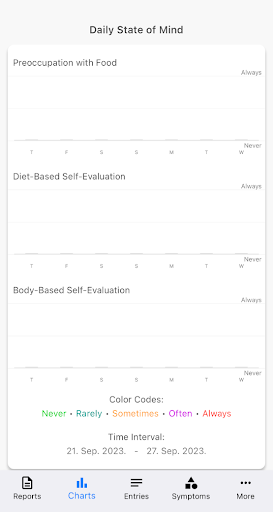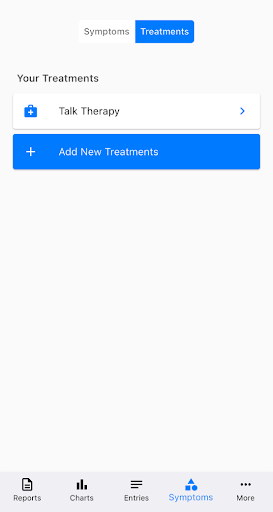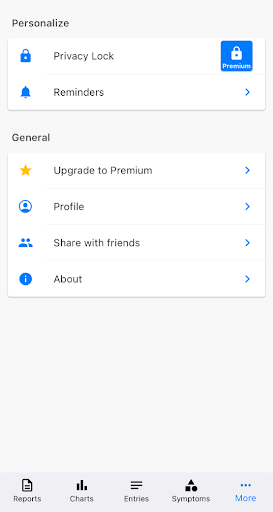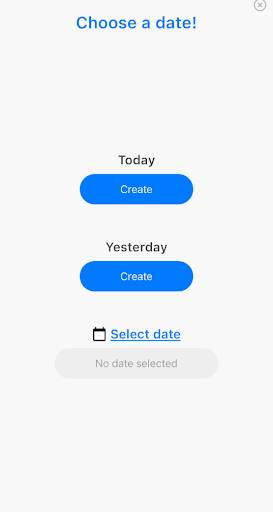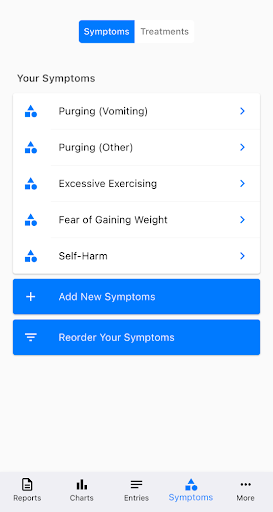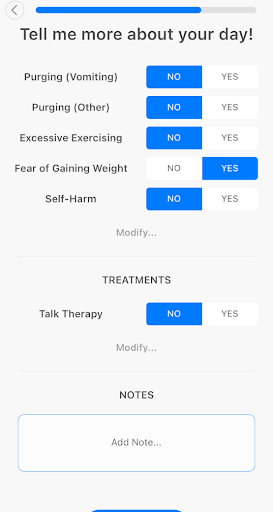People in recovery from an eating disorder often benefit from having a variety of tools and resources to help them develop healthier habits and relationships with food. A number of apps have been developed for just this purpose, but not all eating disorder apps are created equal. This article will review our top picks for the best eating disorder apps available in 2023.
People with eating disorders have unhealthy habits around food, which might include binge eating, restricting food or calories, or purging.1 Eating disorder recovery apps can be downloaded and used on any mobile device, and are designed to aid in the recovery process. Choosing the best apps for eating disorders can be hard, especially since each app will have unique features that may meet the needs of certain people in recovery, but not others.
*While apps are helpful resources for eating disorder recovery, they should not be viewed as a substitute for professional treatment.
Best Eating Disorder Apps at a Glance
Why Trust Us
250+
Companies reviewed1,050+
Hours of first-hand experience825+
Data points analyzedChoosing Therapy’s reviews are fair, honest, and thorough. To date, we’ve reviewed mental health products and services offered by more than 250 companies. That has involved more than 1,050 hours of firsthand use of those products and consideration of over 825 data points. Our editorial policies outline a rigorous review process, but they all boil down to this: produce a review that your own friends and family could rely on. Learn more here.
Our Picks for Best Eating Disorder Apps
- Best Overall – Recovery Record Eating Disorder Management
- Runner Up – Brighter Bite
- Best Alongside a Treatment Program – Nourishly Nutrition & Diet App
- Best for Tracking Symptoms – Eating Disorder Recovery
Detailed Reviews of the Best Eating Disorder Apps
- Rating: Unrated
- Price: Free
- Meal Log? Yes
- Learning Tools? Yes
Why We Chose It

Recovery Record (RR) is also one of only a few apps recommended by the National Association for Anorexia and Associated Disorders (ANAD).2 Plus, the app is free and fully loaded with features, customizable content, and the ability to connect directly with treatment providers.
Pros & Cons

- Recommended by ANAD
- Completely free to use and no ads
- Use CBT, a proven treatment for eating disorders
- Some find the meal log difficult to use
- Extra features and tools make the app lag
- RR assigns a “grade” to the your progress
Cost

Recovery Record is free, and does not have any paid premium memberships for users. There is a separate paid app for clinicians who want to connect with clients using the app.
Overview

Recover Record is one of the most popular, highly rated, and well-known eating disorder recovery apps for a reason. Its many features, ability to interface directly with a treatment team or clinician, clean design, and ease of use make it a clear winner. Plus, it’s 100% free for users to download, with no locked features for paid users.
Some of the features of the RR app include:
- Personalized goals and plans based on individual recovery needs
- Questionnaires to help track and log progress
- Scoring and reward points built in to motivate users in recovery
- Meal logging with the option to upload photos of meals
- The ability to link to treatment providers and allow access to data
- In-app messaging with clinicians and real time feedback
- Allows users to connect with their entire treatment team (if they have the app)
- The ability to set reminders for meals, logging, etc.
- A “pair up” feature that provides options to connect with other users
- A library of coping skills, meditations, and skills to aid recovery
- Customizable easy-access to the skills and features a user likes the most
- Places to log your thoughts, feelings, triggers, goals, and progress
- Motivational content and affirmations
In Our Experience

RR was a great free eating disorder recovery app with tons of additional features. It would be ideal to use during treatment or for aftercare with a physician’s supervision.
- Rating: Unrated
- Price: Free
- Meal Log? Yes
- Learning Tools? Yes
Why We Chose It

Brighter Bite is a great free app with a food log and a mood tracker. The AI chat feature uses various therapeutic techniques to help you cope with distress around food.
Pros & Cons

- Free to use
- Customized goals & progress tracking
- Features meditations, video animations on coping skills, and more in the learning library
- Some glitches, freezing, and lagging issues
- Less extra features than other apps
- Unable to connect with other users
Cost

Brighter Bite is free and does not have any premium memberships.
Overview

Brighter Bite (BB) is another highly-rated app that’s relatively new to the scene, with a recent launch in 2020. Because of this, there are fewer users and reviews available on the app. The app was started by an individual in recovery from bulimia nervosa, and is offered for free to both Apple and Android users. The app developers drew from Acceptance and Commitment Therapy and Dialectical Behavioral Therapy when creating the library of resources, coping skills, and exercises built into the app.
Brighter Bite has a minimalist design that’s easy to use and pleasant to interact with. When starting the app, it prompts you through a series of questionnaires to ask about your goals, mood, and stressors. The app allows users to skip these, but filling them out does provide customized content to users.
Some of the features of Brighter Bite include:
- Questionnaires to help track and log progress
- Scoring and reward points built in to motivate users in recovery
- Meal logging with the option to upload photos
- The ability to link to treatment providers and allow access to data
- In-app messaging with clinicians
- A “pair up” feature that provides options to connect with other users
- A library of coping skills, meditations, and skills to aid recovery
- Places to log your thoughts, feelings, triggers, goals, and progress
- Motivational content and affirmations
In Our Experience

Brighter Bite was easy to setup and I could use the app within five minutes. The AI chat was actually a mood check-in with encouraging words set to music, which was nice but not what I expected.
- Rating: Unrated
- Price: Free
- Meal Log? Yes
- Learning Tools? Yes
Why We Chose It

Nourishly allows you to connect directly with your treatment team. This allows your team to give you feedback in sessions and out of sessions.
Pros & Cons

- Links to clinicians for easy progress sharing
- Same developer as RR
- Use CBT tracking of behaviors and urges
- Not specific to eating disorders, helps with a range of food related issues
- Somewhat confusing to navigate
- Meal log and food reminders are glitchy
Cost

Nourishly is free to individual users, but does charge clinicians (dietitians, therapists, or doctors) to use the app with patients.
Overview

Nourishly was developed by the same people who created Recovery Record, our top pick for eating disorder recovery apps. This app is designed for people with a wide array of health issues and goals, instead of being targeted to users with eating disorders. Depending on the user’s initial problems and goals, the app will provide different customized content and features.
Some of the main features of the Nourishly app include:
- Food tracking logs and meal planning resources
- Customized content and information based on different goals and health issues
- Ability to connect with clinicians to share information and logs
- Ability to select “missions” (goals) or set your own and track progress over time
- Pedometer and heart rate monitor built into the app
- Activity log that allows users to track exercise
- Rewards for progress made and missions accomplished
- Over 200 coping skills available to users
- Community forums to connect with other users
- Many guided meditations with audio
While Nourishly is not specifically designed for people in recovery from eating disorders, it does have many features that could support recovery. In fact, the app was developed by the same people who developed our top pick, Recovery Record, so it definitely includes eating disorder-relevant content and features. The app allows users to customize their content and experience based on their health issues and goals.
In Our Experience

Nourishly was not at all difficult to get started with and it seemed fairly easy to connect with a treatment team, if necessary. I liked that I could log different activities, like exercise, thoughts, and feelings.
- Rating: Unrated
- Price: Free
- Meal Log? No
- Learning Tools? No
Why We Chose It

The Eating Disorder Recovery app would be ideal for those with their disordered eating habits stable. You can track your thoughts, feelings, and behaviors easily and share them in a PDF with your primary care provider.
Pros & Cons

- 3-day free trial
- Export 7, 30, or 90-day or 1-year progress report
- Clinical focus versus personal
- Only available on Apple at this time
- Excessive options for inputting information
- No meal log
Cost

The Eating Disorder Recovery app costs $9.99 monthly or $39.99 annually, with both plans coming with a 3-day free trial. Eating Disorder Recovery does have a limited free version available and it is unclear what the premium app offers in comparison at this time.
Overview

The Eating Disorder Recovery App has many clinically-focused features that are aimed at monitoring and tracking symptoms and creating individual progress reports. Users can download and export these to share with their treatment provider, or just to track their own progress over time. It also has a variety of other features to aid in eating disorder recovery.
Some of the main features of the Eating Disorder Recovery app include:
- Detailed symptom logging and tracking
- Customized reports to export to track 7, 30, or 90-day progress
- A notes feature to use for journaling or additional logging
- A tool to help you connect with treatment providers
The Eating Disorder Recovery app is one of the lesser-used recovery apps for eating disorders. While it has some clinically sound functions and features, the app can only be used on Apple devices, which limits its potential reach. It is also difficult to find information on this app, but our testing yielded some solid features and resources that may be helpful to those in recovery from eating disorders.
In Our Experience

The Eating Disorder Recovery app is a great tracking app for those who need less support in their recovery.
Download the Eating Disorder Recovery app on the Apple App store here.
Compare the Best Eating Disorder Apps
| Recovery Record | Brighter Bite | Nourishly | Eating Disorder Recovery | |
|---|---|---|---|---|
| Costs | Free | Free | Free | $9.99 monthly |
| Free Trial | N/A | N/A | N/A | N/A |
| Meal Log |  |
 |
 |
 |
| Progress Tracking |  |
 |
 |
 |
| Connects With Your Clinician |  |
 |
 |
 |
| Learning Library |  |
 |
 |
 |
| Recovery Record | Brighter Bite | Nourishly | Eating Disorder Recovery |
|---|---|---|---|
| Costs | |||
| Free | Free | Free | $9.99 monthly |
| Free Trial | |||
| N/A | N/A | N/A | N/A |
| Meal Log | |||
 |
 |
 |
 |
| Progress Tracking | |||
 |
 |
 |
 |
| Connects With Your Clinician | |||
 |
 |
 |
 |
| Learning Library | |||
 |
 |
 |
 |
Final Verdict
There has been an explosion of mental health apps that have hit the market in recent years, but only a few are specifically tailored to people who struggle with disordered eating patterns.
Our top pick was the highly popular Recovery Record app, an app that was designed to allow users to interact and share data with their treatment team. Rise Up + Recover was a close runner-up but for slightly different reasons. This app was chosen because it is an excellent self-help resource for people recovering from an eating disorder, with lots of interactive content, engaging media, and functional features.




